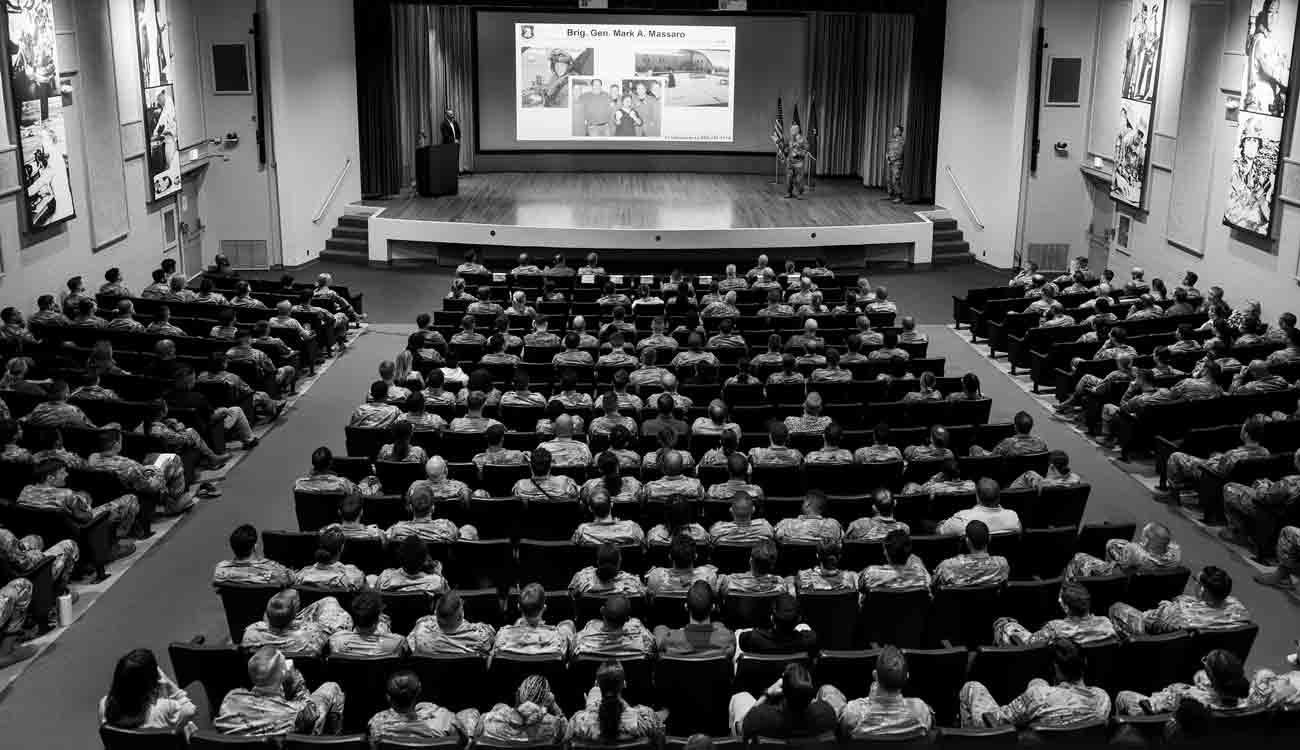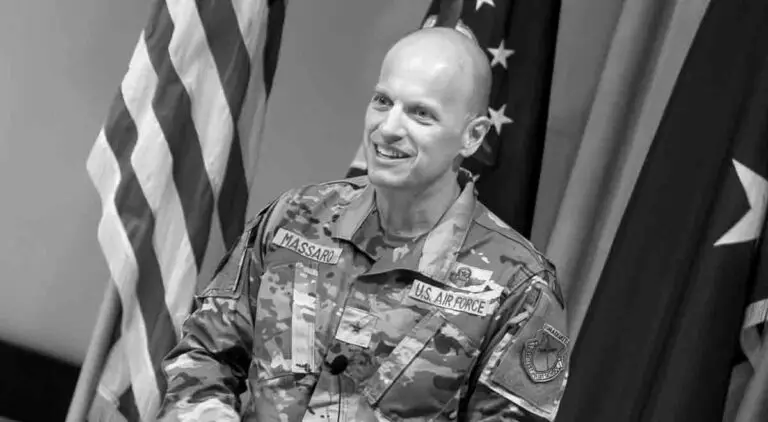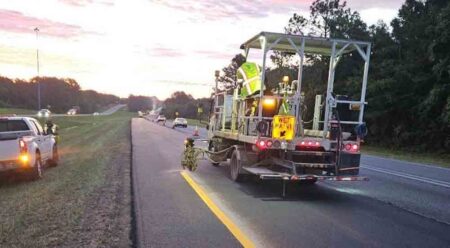EGLIN AIR FORCE BASE, Fla. — The 96th Test Wing commander emphasized family values, his vision for the wing, and potential future changes during his first all-call on Aug. 29.
Brig. Gen. Mark Massaro, a native Floridian, and a former 40th Flight Test Squadron Airman outlined his leadership philosophy as three basics: execute our mission, take care of our people, and partner for success.
“We have to maximize the value of each person we have available to us to execute the mission,” said the Clearwater native in his 26th year in the Air Force.
Those philosophies rolled into Eglin’s support of the national defense strategy and specific areas that are part of the base’s daily missions, such as electromagnetic spectrum operations and munitions.
“We need to develop new capabilities,” said General Massaro.
“These areas are the programs and operational capabilities we need to get after. They will come from program offices and developmental test organizations to move them to a point where they are combat capabilities. Once they reach that stage, we hand them over to the warfighter. Then they become what we as Airmen and Guardians use to execute the mission.”
The commander then moved on to the Air Force’s optimization efforts and the reorganizing and structural changes that may come with that.

Currently, the 96th Test Wing is considered an institutional wing, which means the unit’s test mission isn’t seen as deployable from a traditional combat perspective. However, the wing’s airmen are still subject to individual deployments.
He addressed the possibility, under this new construct, of splitting the operations and support functions into separate wings, like the base’s former structure of the 46th Test Wing and 96th Air Base Wing prior to 2012.
“There are discussions right now with Air Force Chief of Staff and Air Force Materiel Command level about this specific topic,” he said.
“We will communicate more information as we get it when its clearer what an institutional wing and a base command will look like as how it affects unit of action.”
General Massaro finished by providing action items in the form of questions for his Airmen to consider. They were why we serve, how we make it happen, and what we do.
“Think about how these apply to you and your wingman,” he said.
“Each one of us, active-duty, civilian, contractor, are all critical to this mission. You all have value to this organization throughout whatever changes that may occur in the next few years.”
Story by Samuel King Jr.






